#putin's attempts to murder navalny
Link
It looks like the start of another bad week for Vladimir Putin. 🥳 🎉 👏🏼
Russia’s leading anti-Putin dissident, Alexey Navalny, is the subject of a film which won the Oscar for Best Documentary Feature on Sunday.
Now everybody is going to see the film and be reminded of what a dickhead dictator Putin is.
“Navalny,” a film that explores the plot to kill Russian anti-corruption campaigner and former presidential candidate, Alexey Navalny, has won the Oscar for best documentary feature at Sunday’s Academy Awards.
The riveting real-life thriller follows Navalny’s political rise, his survival of an assassination attempt against him by poisoning and his subsequent imprisonment. Directed by Daniel Roher and presented by CNN Films and HBO Max, “Navalny” documents a methodical investigation by CNN Chief International Correspondent, Clarissa Ward, and journalist group, Bellingcat, to unmask Navalny’s would-be killers.
[ ... ]
He was poisoned with nerve agent Novichok in 2020, an attack several Western officials and Navalny himself openly blamed on the Kremlin. Russia has denied any involvement.
After several months in Germany recovering from the poisoning, Navalny returned to Moscow, where he was immediately arrested for violating probation terms imposed from a 2014 embezzlement case that he said was politically motivated.
He was initially sentenced to two-and-a-half years, and then later given nine years over separate allegations that he stole from his anti-corruption foundation.
youtube
#navalny#academy award#best documentary#oscar2023#daniel roher#cnn films#alexey navalny#gulag#russia#anti-putin#dissident#vladimir putin#putin's attempts to murder navalny#dictatorship#authoritarianism#invasion of ukraine#алексей навальный#владимир путин#путин хуйло#путлер#долой путина#путин - военный преступник#нет войне#путин – убийца#путин – это лжедмитрий iv а не пётр великий#союз постсоветских клептократических ватников#зеленский оказался круче путина#україна переможе#слава україні!#россия проигрывает войну
5 notes
·
View notes
Text

Russia’s Alexei Navalny, a fierce anticorruption campaigner who galvanized the country’s political opposition, has died in prison, Russian news agencies reported Friday. The cause of his death was still being established, said prison authorities, cited by Russian news agency TASS. Navalny had been serving sentences in a penal colony amounting to more than 30 years on various charges. He was 47 years old.
A statement from the prison authorities said that he had felt unwell following a walk outside and lost consciousness. The statement said a medical team was called on site but was unable to save him. Navalny had been behind bars since January 2021, when he returned to Russia from Germany, where he was recovering after falling ill during a flight inside Russia. German doctors concluded that he had been poisoned with the Soviet-era nerve agent, Novichok. Navalny blamed his poisoning on the Kremlin, which denied involvement in any attempt to harm him.
[WSJ]
+
Alexi Navalny has been murdered by Vladimir Putin. Democracy is fragile. Not a drill. Rest in power.
+
“Listen, I've got something very obvious to tell you. You’re not allowed to give up. If they decide to kill me, it means that we are incredibly strong.”
- Alexei Navalny
+
"Everything will be all right. And, even if it won't be, we'll have the consolation of having lived honest lives."
Alexei Navalny (1976-2024)
419 notes
·
View notes
Text
Following are remarks Friday of the foreign minister of Poland, Radek Sikorski, at the United Nations Security Council.
* * *
I’m amazed at the tone and the content of the presentation by the Russian ambassador.
And I thought I could be useful by correcting the record. Ambassador Nebenzya has called Kyiv a client of the West. Actually, Kyiv is fighting to be independent of anybody.
He calls them a criminal Kyiv regime. In fact, Ukraine has a democratically elected government.
He calls them Nazis. Well, the president is Jewish, the defense minister is Muslim, and they have no political prisoners.
He said that Ukraine was wallowing in corruption. Well, Alexei Navalny documented how honest and full of probity his own country is.
He blamed the war on U.S. neo-colonialism. In fact, Russia was trying to exterminate Ukraine in the 19th century, again under Bolsheviks, and now it is the third attempt.
He said we are prisoners of Russophobia. “Phobia” means irrational fear. Yet, we are being threatened almost every day by the former president of Russia and Putin’s propagandists with nuclear annihilation. I put it to you that it is not irrational — when Russia threatens us, we trust them.
He said that we are denying Russia’s security interests. Not true. We only started rearming ourselves when Russia started invading her neighbors.
He even said that Poland attacked Russia during World War II. What is he talking about? It was the Soviet Union that attacked Poland together with Nazi Germany on the 17th of September 1939. They even held a joint victory parade on the 27th of September.
He says that Russia has always only beaten back aggression. Well, what were then Russian troops doing at the gates of Warsaw in August 1920? They were on a topographic excursion? The truth is that for every time Russia was invaded, she has invaded ten times.
He says that it is a perfidious proxy war by the West. My advice is – don’t fall into the Western trap. Withdraw your troops to international borders and avoid this Western plot.
He also says that there was an illegal coup in Kyiv in 2014. I was there. There was no coup. President Yanukovych murdered a hundred of his compatriots and was removed from office by a democratically elected Ukrainian parliament, including by his own party, the Party of Regions.
And finally he is saying that we the West are somehow trying to persuade that Russia can never be beaten. Well, Russia did not win the Crimean War, it didn’t win the Russo-Japanese war, it didn’t win World War I, it didn’t win the battle of Warsaw, it didn’t win in Afghanistan, and it didn’t win the Cold War.
But there’s good news. After each failure there were reforms.
Such demagoguery is unworthy of a member on a permanent basis of the Security Council. But what the ambassador has achieved is to remind us why we resisted Soviet domination and what Ukraine is resisting now.
They failed to subjugate us then. They’ll fail to subjugate Ukraine and us now.
79 notes
·
View notes
Text
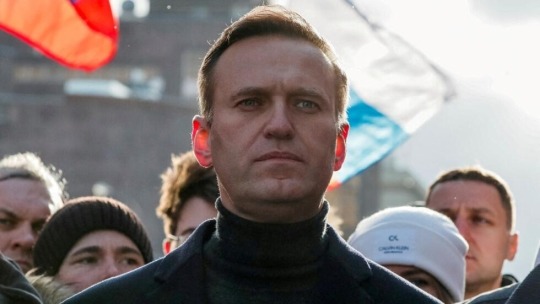
ALEXEI NAVALNY
By now, many will have heard the devastating, unbelievable news of Alexei Navalny's reported death in a Russian prison. Navalny's wife, Yulia Navalnaya, says that she awaits confirmation of these claims.
If this news is confirmed then several things are necessary:
1)- Vladimir Putin bears sole responsibility for Navalny's presumed death
2)- The presumed death of Alexei Navalny is premeditated murder, following on from the confirmed murder attempt in August 2020
3)- In response, Russia must never be welcomed back into the international circle until Putin is removed from power
4)- Putin's international arrest warrant must be extended to include systematic assassination of Russian dissidents
5)- All of the Russians involved in this presumed crime must be sanctioned and blocked from entering as many countries as possible
6)- The international community must launch a comprehensive investigation into the deaths of all Russian politicians and other dissidents going back to 1998 and present their findings to the International Criminal Court
7)- The international community must demand medical records to substantiate Russia's "investigation" into Navalny's presumed death
8)- The international community must continue to investigate and expose the domestic crimes of Putin's regime, including the domestic terror attack of August 2020, when Putin tried to murder Navalny with the banned chemical agent Novichok
9)- Putin must be designated as an international terrorist
If this news is confirmed, nobody can doubt that the Russian regime has a state program of assassination used against its own citizens. Each and every one of these murders is a crime against humanity. Putin must never be allowed to rest again. He must face maximum pressure from all quarters and renewed investigations into the previous murders of Russian dissidents.
I give sincere condolences to Navalny's wife, Yulia Navalnaya, his children, Daria and Zahar, his parents, friends, and his loyal supporters who have continued his work during his unjustified imprisonment.
It is Russians like Navalny who have spoken out against Russia's slide into tyranny, terrorism, and moral disgrace. Putin is the worst stain on Russian history since Stalin. He will get the punishment that is coming to him for this and for his many other crimes, including his ongoing crimes against Ukraine.
Please share this post in support and memory of Alexei Anatolyevich Navalny, the bravest Russian of the last decade.
ВЕЧНАЯ ПАМЯТЬ
#ВЕЧНАЯ ПАМЯТЬ#alexei navalny#navalny#Алексей Навальный#russia#terrorism#putin is a terrorist#punish putin#yulia navalnaya#daria navalnaya#zahar navalny#murder#russian politician#russian dissident#news#devastating#may god rest his soul#russia without putin
47 notes
·
View notes
Text
Heroes
I was troubled, but also very moved, by the death of Alexei Navalny, the personality at the core of the resistance movement in Russia struggling to oppose the dictatorial and oppressive policies of the Putin regime. What exactly happened is not at all clear. At the time of his death, Navalny was imprisoned in a penal colony in Western Siberia in a place called Yamalo-Nenets near the Arctic Circle. According to the warden, he was taking a walk just two weeks ago after telling some guards that he didn’t feel at all well. And then he collapsed. The prison authorities claim to have done all they could to resuscitate him, but were, they said, regretfully unsuccessful, as result of which regretted unsuccess he was dead by mid-afternoon. His body was then held for well over a week and then finally released to his family for burial. And so ended the life of one of the world’s true heroes, a man who not only put his life on the line to stand up for his beliefs, but who personally embodied the struggle for human rights in today’s Russia. Yehi zikhro varukh. May his memory be a blessing for his co-citizens in Russia and for us all.
There’s a lot to say about Navalny, but the detail—one among many—that is particularly resonant with me has to do with his return to Russia in 2021, an act that was as noble as it was death-defying. By 2021, of course, Navalny had a long history of being a thorn—and an especially sharp one at that—in the side of Vladimir Putin. He had led countless demonstrations against the Putin government. He repeatedly accused, certainly correctly, Putin of engineering his own victories whenever he stood for re-election as Russia’s president. And he openly opposed the war against Ukraine.
Navalny tried several times to gain a foothold in the bureaucracy he so mistrusted. He ran for mayor of Moscow in 2013. And then he ran for president of Russia in 2018, a move that was in and of itself daring given that he had previously been found guilty of embezzlement, which detail would normally have disqualified him from running for elected office despite the fact that there appears to be no reason to think that the verdict was just or reasonable. But the real reason Navalny was such a problem for Putin was that he appeared to be unfazed by the forces of government, including the Russian judiciary, that were openly and brazenly arrayed against him. And so the government eventually took matters to a new level.
In 2020, on a flight to Moscow, Navalny took ill and ended up on a ventilator in the Siberian city of Omsk, where his airplane had been obliged to make an emergency landing. It didn’t take doctors long to realize that he had been poisoned. (It later came out that his clothing, including his underwear, had somehow been suffused with the Novichok nerve agent, a poison known to have been used by Russia in the past to murder dissidents abroad.) Eventually, the German government, acting unilaterally, sent an airplane to Omsk to bring Navalny to Germany. Amazingly, this actually worked. And it was in Berlin that doctors at the famous Charité Hospital determined with certainty that Navalny had been the victim of an unsuccessful attempt on his life and that he had definitely been poisoned. Remarkably, his life was saved and he recovered. And then, in January of 2021, he returned to Russia.
Because Navalny had been convicted in a 2014 trial that was almost certainly politically motivated and unjust, he had theoretically been forbidden to leave Russia even for medical treatment. And so was he arrested at the Moscow airport upon his return to Russia and imprisoned to await a judge’s decision about his future. And it was just a month after that, in February of 2021, that a Moscow judge decreed that his suspended sentence, minus time served, would be replaced with an unsuspended one and that Navalny would have to serve two and a half years in a Russian prison. He was sent to one prison, then to another. Eventually, the government determined that it did not want to face a freed Navalny in less than three years and so began new proceedings against him again, this time charging him with fraud and contempt of court. In March of 2022, just two years ago, he was found guilty of all charges and sentenced to nine years in a maximum security prison. And then, because even nine years was apparently not long enough, Navalny was put on trial again last summer and sentenced to an addition nineteen years on extremism charges. And so he ended up in the Arctic Circle prison in which he died two weeks ago at the age of forty-seven.
Navalny’s is a long, complicated story. But the one detail that stands out to me, the single part of the story that is the most resonant with me—and with my lifelong interest in the concept of heroism—has to do with Navalny’s decision in January 2021 to leave safety in Berlin and return to Russia. He had every reason to expect that he would be arrested upon return. He had no reason to suppose that any future trials to which he would be subjected would be just. He surely knew not to expect clemency or mercy from Vladimir Putin, the man behind all the juridical procedures overtly and unabashedly designed to silence him. And yet he chose to return—not specifically, I’m sure, because he wanted to die or because he wanted to participate in yet another crooked trial, but because he saw himself as a moral human being who had been granted the opportunity to inspire his co-citizens to demand justice and freedom for themselves and for their nation.
I’ve written in this space, although not too recently, about my boundless admiration for Dietrich Bonhoeffer, the German pastor who was safe and sound in New York when the Second World War broke out, but who made the noble (and eventually fatal) decision to return to Germany and there to try to inspire people to resist Nazism and to turn away from the path of ruinous and fascist barbarism down which the Nazi government was intent on leading the nation. (To revisit my comments about Bonhoeffer from 2011, click here.) Here was, in my eyes, a true hero: a man fully committed to his own ideals who made the conscious decision to leave the safe haven he had already found and to travel to a land that would probably, and which eventually did, kill him. To me, that decision to risk everything to attempt, even quixotically, to do good in the world represents the essence of heroism. It came to naught, of course. He did a lot of good for a lot of people, but, in the end, he paid the big price. On April 8, 1945, just a month before the end of the war, Bonhoeffer was tried on the single charge of treason in a court set up in the Flossenbürg concentration camp. There were no witnesses. No evidence against him was brought forward, nor was a transcript of the proceedings made. He was found guilty, apparently on Hitler’s personal order, and executed the next day in a way that was specifically intended to maximize his personal degradation and agony. (Eric Till’s 2000 movie, Bonhoeffer: Agent of Grace, is a worthy attempt to tell Bonhoeffer’s story even if the director couldn’t quite bring himself to depict the barbarism of Bonhoeffer’s final moments in any detail, let alone explicitly. For a more detailed account of his life, I recommend Eric Metaxas’s 2020 biography, Bonhoeffer: Pastor, Prophet, Martyr, Spy, which I read a few years ago and enjoyed immensely.)
So, two men who lived scores of years apart, who spoke different languages, who came from different countries. One, a political man fully engaged by the political process. The other, a man of God fully in the thrall of his own calling to preach God’s word in the world and to inspire others to seek justice and to act righteously. But both heroes in my mind—both fully safe in a place their tormentors could not reach them and yet both of whom made the decision to return to their separate homelands to seek out in those places the destiny to which each felt called. Would I have left New York in 1939 or Berlin in 2021 to risk my own life to follow the destiny I perceived to be my own? I’d like to think I would have. Who wouldn’t? But we don’t all have it in us to act that boldly, to risk everything to be ourselves fully and in the most noble way possible. To be a man in full—or a woman in full—is never quite as easy in real life as it sounds as though it should be on paper. And that is why I admire those two men, Bonhoeffer in his day and Navalny in ours—and their willingness not merely to talk the talk, but truly—and at their own mortal peril—to walk the walk. May they both rest in peace!
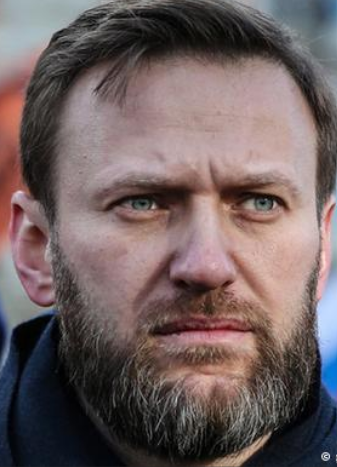
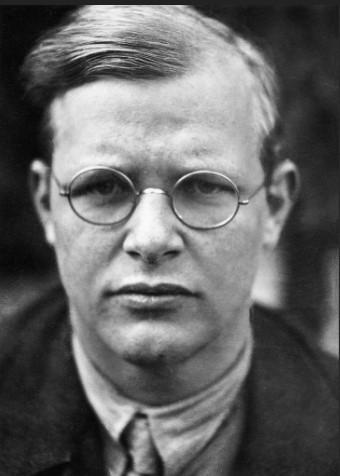
4 notes
·
View notes
Text
New Post has been published on Books by Caroline Miller
New Post has been published on https://www.booksbycarolinemiller.com/musings/a-curmudgeon-in-the-family-of-man/
A Curmudgeon In The Family Of Man
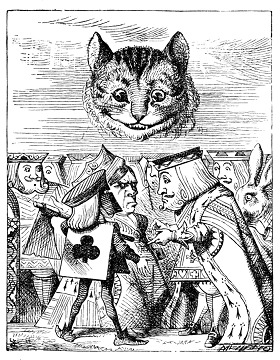
I was grateful to my neighbor for helping me with a technical problem. He’s the resident guru on computers at the retirement center and far too modest about himself. Aware that I might need his advice in the future, I asked if he’d care to adopt me despite my advanced age. A smile parted his lips as his gaze dropped to the carpet. “We’re all family here,” he said. I walked away thinking he’d uttered a beautiful notion, though I tend to reject sentiments that are warm and fuzzy. I’m old enough to know that the history of “the “family of man” is dysfunctional. Since Caine slew Able we’ve worked to perfect the art of violence. Murder isn’t the kind of glue to hold society together, so we attempt to contain it by inventing rules. Murder on a grand scale we call war. The rules on those occasions are those of The Geneva Convention. The smaller stuff we leave to religion, laws, politics, and the whims of tyranny. But, like the potter who leaves his fingerprints upon newly shaped clay, because we are flawed creatures, the systems we create can be weaponized and used to threaten others. Justice, after all, is the gloved fist of vengeance. Bill Clinton, our 42nd President, sees philanthropy as a better way to promote social cohesion. Philanthropy can help bust through political and cultural gridlock by showing what can be done. He has many true believers, so many that at his last conference on philanthropy, a thousand do-gooders had to be turned away. Enthusiasm on this scale is heartwarming, but I’m a curmudgeon. I’ve never been keen to turn the world over to philanthropists. Who are they, after all, but people otherwise known as oligarchs? Nick Caraway in The Great Gatsby told us about them. They are people who don’t think like the rest of us. I doubt any butcher, baker, cowboy, or tailor would choose to live in a Martian colony under Elan Musk’s rules. I place my faith in “we the people.” Democracy’s collective mind is where we are most likely to find common ground. Alexei Navalny, Vladamir Putin’s murdered opponent, was a man of the people. Having survived attempts to assassinate him, he warned his followers their fate didn’t depend upon his survival but upon their will. If it happens, if they decide to kill me, it means we are incredibly strong. We need to use that power. (“A Hero of Our Time,” by Mariam Elder, Vanity Fair, April 2024, pg. 34.) His words may seem like a whistle against the dark, but the Ukrainian people are a living example of that courage. Their David and Goliath story can set this curmudgeon’s heart to racing. Even so, dreams can become fodder for blind ambition. Our Republican House has placed a chokehold on future aid to that country, reversing their past support. They did it to placate their revenge candidate, Donald Trump, in the upcoming presidential election. Trump holds a grudge against Ukraine and is happy to curry the favor of their invader, Vladimir Putin. If elected, our former president promises to leave Ukraine to the Russians. The predatory world in which we live is Nature’s doing, but humans have wasted no time in making a hell out of the heaven they inherited. Some attempt to escape the violence by turning to drugs or alcohol. Others rely on religion, mysticism, or conspiracy theories for the dopamine high that makes them happy. Artificial Intelligence (AI) and augmented virtual reality could provide other avenues of escape. Their illusions might help us create worlds so satisfying, that many won’t return to planet Earth. For proof of that possibility, observe how people are mesmerized by their smartphones. We humans aren’t algorithms, however. Wherever we go, we drag our dark side behind us like a beloved toy. That’s a drawback to consider as we cheer the coming of augmented reality. Despite the challenges ahead, like Navalny, I have hope because….well, what else is there? Fraternity, equality, and liberty are pretty good ideas. To obtain them all we have to do is curb our tribal nature, though some have argued it doesn’t exist. Whether Instinctive or learned, history confirms that group-think seems natural to us. We desire to be among people who look like us and share our values. That passion for conformity rivals our growing need to respect diversity and sometimes makes democracy seem like a fool’s dream. Given my doubts about the future of mankind, I left the caring gentleman at the retirement center with one request. “please don’t include me as a member of the community. I prefer to be the resident alley cat.”
#Alexei Navalny#Bill Clinton#Donald Trump#Elan Musk#Mariam Elder#Nick Caraway#oligarchs#philanthropy#The Family of Man#The Geneva Convention#The Great Gatsby#tribalism#Vladamir Putin
3 notes
·
View notes
Text
Next month, Russian President Vladimir Putin will stage a carefully managed, entirely undemocratic presidential election. The recent death of Russia’s best-known opposition politician, Alexei Navalny, in a penal colony is not the first time that a public figure opposed to Putin has died. Indeed, every prominent opposition figure—including Boris Nemtsov, Vladimir Kara-Murza, and so many others—has been imprisoned, poisoned, murdered, or forced into exile abroad, and the election’s outcome is already assured.
Russian autocracy has crossed a point of no return. What began as a flawed but aspiring democracy in the early 1990s has morphed into a vicious regime that attacks its neighbors, stifles expression at home, silences opposition voices, and imprisons or assassinates those who dare to speak up.
It is high time for governments, parliaments, and nongovernmental organizations around the world to unequivocally declare Russia’s upcoming election unlawful and its preordained victor an illegitimate president.
In 2020, the Russian Duma decided to amend the country’s constitution without a single no vote, extending term limits to allow Putin to stay in power until 2036. The European Parliament, while falling short of declaring Putin illegitimate, resolved in 2021 that “the EU should condemn any attempt by President Putin to remain in office beyond the end of his current and final presidential mandate on 7 May 2024.” The 2020 constitutional change had been “illegally enacted,” the EU parliamentarians found.
But the paramount reason for not recognizing the results of the March elections is the fact that the vote will be held in the occupied Ukrainian territories that have been unlawfully annexed by Russia. Recognizing the legitimacy of elections held in occupied Ukraine—where Putin’s troops appear to have committed the most horrid war crimes in 21st-century Europe—would contribute to the creeping international recognition of Russia’s annexation of these territories.
Unfortunately, there is ample precedent for the world doing the wrong thing. There was little international response to Russia’s illegal annexation of Crimea in 2014 and the subsequent Russian presidential elections held in occupied Ukraine in 2018, with the exception of a few symbolic Western sanctions in 2014 that were little more than a slap on Putin’s wrist. The lack of a robust reaction in the past helped pave the way for the full-scale invasion in 2022 by showing Putin that he had little to fear from the West. Further acquiescence now will set a dangerous precedent, emboldening autocrats everywhere.
Beyond being an authoritarian dictator with a mandate based on illegitimate elections, Putin stands accused of war crimes. In 2023, the International Criminal Court issued an arrest warrant based on the unlawful deportation of Ukrainian children to Russia. An alleged war criminal should not be considered legitimate by Western democracies.
For all these reasons, Putin should take his rightful place alongside authoritarian strongmen such as Zimbabwe’s Robert Mugabe, Syria’s Bashar al-Assad, and Venezuela’s Nicolás Maduro.
After the latter was declared illegitimate by many Western countries, including the United States and members of the European Union, his country was placed under new diplomatic and economic sanctions. Washington imposed an embargo on Venezuelan oil exports, froze state-owned assets, and pressured non-U.S. firms to suspend transactions with Venezuela. In part due to these sanctions—and in part due to its own economic mismanagement—the country experienced the largest economic contraction in modern Latin American history and the sixth-largest contraction ever recorded globally.
After being declared an illegitimate dictator by the United States and other countries in 2008, Mugabe also faced increased condemnation for human rights abuses and election fraud. The European Union and the United States imposed sanctions, including travel bans and asset freezes, on Mugabe and his close associates. This significantly affected Zimbabwe’s economy and international relations, contributing to the its prolonged economic crisis.
Syria’s Assad has been considered illegitimate by many Western countries, particularly after the 2011 outbreak of the Syrian civil war. The regime has been subject to numerous sanctions by the United States and the European Union, significantly impacting its economic and diplomatic ties. And in Egypt, the regime of then-President Hosni Mubarak was ultimately deemed illegitimate by much of the international community, including many Western countries, following his suppression of the 2011 Egyptian Revolution. This led to his resignation and a period of significant political upheaval in Egypt.
Russia has, of course, been placed under significant Western sanctions since 2022, but these are far from perfect. On the contrary, the Kremlin has been highly successful in circumventing Western sanctions on its petroleum exports; it has also been successful at evading Western export controls and continues to use Western components to build the missiles and drones that rain death on Ukrainian cities. Officially recognizing Putin as an illegitimate leader based on an illegal election could be the catalyst for the world to get serious about tightening these sanctions.
The Council of Europe has shown the way by taking the first step. In October 2023, the council’s Parliamentary Assembly passed a resolution that calls on member states to “recognise Vladimir Putin as illegitimate after the end of his current presidential term and to cease all contact with him, exception for humanitarian contact and in the pursuit of peace.”
In the event of his reelection, the resolution says, Putin should be denied recognition as president, and contact with his apparatus should be refused—except for negotiations aimed at achieving peace. Western democratic governments and international institutions should follow the assembly’s step.
History shows that declaring a despotic leader illegitimate is more than a symbolic act; it can trigger real change. It is time for Western democracies to call the Russian regime out for what it is.
4 notes
·
View notes
Note
5, 10, 19 :)
5. an animated film
an extremely basic choice but Inside Out (2015). it's hard to say which has had more sway over my mental health in the last decade -- this film or 6 years of private therapy. i just think it's perfect and such an ingenious way of teaching kids (and young adult ashleigh) about emotions as a whole and especially the importance of sadness
10. a film whose main genre is action/adventure
Hero (2002). came for the cast, stayed for the UN👏BE👏LIEV👏ABLE👏 production design and martial arts. an absolute must-see of the wuxia genre and of chinese cinema in general
19. a film that is a documentary/video essay
What Happened, Miss Simone? (2015). to be clear, there's nothing novel or groundbreaking about this film. it just takes the typical documentary formula and does it reallyyyyy flipping well. nina simone's story is incredibly powerful and so moving, the respect i have for that woman is unparalled
honourable mention to Navalny (2022) in light of alexei navalny's recent death murder. it follows the aftermath of the last time putin made an attempt on his life.... didn't stop the bastard from trying again
send me a number and i'll give you a movie rec
0 notes
Text
Joe Biden marks ‘painful anniversary’ of Evan Gershkovich’s arrest in Russia, saying: ‘we’ll never stop working to bring you home’ – live
US president condemns continued detention of Wall Street Journal writer
During an Oval Office meeting with Olaf Scholz last month, Joe Biden proposed to the German chancellor that he authorize the release of a Russian hitman serving life in prison for murder, in hopes of coaxing Vladimir Putin to release three high-profile prisoners.
These included Wall Street Journal reporter Evan Gershkovich, ex-Marine Paul Whelan and prominent Russian dissident Alexei Navalny.
It was the most shocking of a series of setbacks in secret prisoner talks between Washington and Moscow that have now bedeviled two U.S. presidencies.
America once had only one prisoner it considered wrongfully jailed in Russia, the 54-year-old Whelan. But through nearly six years of intense and combative negotiations, Putin has run up the score, stockpiling his prisons with Americans to swap for the very few Russians abroad he cares to bring back.
Journalism is not a crime, and Evan went to Russia to do his job as a reporter — risking his safety to shine the light of truth on Russia’s brutal aggression against Ukraine. Shortly after his wholly unjust and illegal detention, he drafted a letter to his family from prison, writing: “I am not losing hope.”
As I have told Evan’s parents, I will never give up hope either. We will continue working every day to secure his release. We will continue to denounce and impose costs for Russia’s appalling attempts to use Americans as bargaining chips. And we will continue to stand strong against all those who seek to attack the press or target journalists — the pillars of free society.
To Evan, to Paul Whelan, and to all Americans held hostage or wrongfully detained abroad: We are with you. And we will never stop working to bring you home. Continue reading... https://www.theguardian.com/us-news/live/2024/mar/29/us-politics-biden-trump-updates?utm_source=dlvr.it&utm_medium=tumblr
0 notes
Text
Russian opposition leader Alexei Navalny has died at an Arctic gulag, he was 47.
It's highly likely that he was murdered by Russo-fascist Dictator Vladimir Putin.
World leaders, senior western officials and Russian opposition figures have praised the courage of the jailed Kremlin critic Alexei Navalny, condemning his death and placing responsibility for it firmly on Vladimir Putin and his regime.
“Let us be clear, Russia is responsible,” the US vice-president, Kamala Harris, said at the annual Munich Security Conference where many leaders were gathered to bolster international unity against Russia’s two-year war on Ukraine.
Harris expressed scepticism of Russia’s official explanation that Nalvany, 47, had died after a fall at the Arctic penal colony where he was being held, adding that if the death was confirmed it would be “a further sign of Putin’s brutality”.
Ukraine’s president was equally blunt. “It’s obvious he was killed by Putin,” Volodymyr Zelenskiy said. “Putin doesn’t care who dies, only for him to hold his position. And that is why he should not keep anything.”
The French president, Emmanuel Macron, said on X that in Russia today, “free spirits are sent to the gulag, where they are condemned to death”. He saluted Navalny’s “memory, commitment and courage” and sent his condolences to his family.
Germany’s chancellor, Olaf Scholz, said he had met Navalny in Berlin when the anti-corruption campaigner was recovering from a poisoning attack and discussed with him there “the great courage it takes to return” to his country.
“He has probably now paid for this courage with his life,” Scholz said, adding that Navalny “stood up for democracy and freedom in Russia” and his death showed “what kind of regime is in power in Moscow”.
Britain’s prime minister, Rishi Sunak, said Navalny’s death was “terrible news”, adding that Navalny “demonstrated incredible courage throughout his life”. The British foreign secretary, David Cameron, added: “We should hold Putin accountable for this.”
Some Russians took to social media to express their anger and shock.
Many supporters posted a clip of Navalny before his return to Russia in 2021, in which he tells Russians “not to give up” when asked what he would say if he were ever killed.
Navalny's death was probably being planned in Moscow around the time of Tucker Carlson's "interview" with Putin. Carlson was making excuses for Putin's murdering of dissenters even before recovering from his Russia jet lag.
Tucker Carlson Days Ago on Navalny and Assassinations: ‘Leadership Requires Killing People’
Republicans led by Donald Trump actively support "savvy genius" Putin.
Putin was a lieutenant colonel in the Soviet secret police (KGB). People perceived as his opponents started dying unusual deaths not long after he became president. The number of such deaths has soared in the past two years since the time of the full scale invasion of Ukraine began. Here's a November 2023 segment from 60 Minutes Australia which looks at some of those suspicious deaths and references Putin's previous attempt to kill Navalny.
youtube
More Putin murders of opponents mentioned here...
Full List of Putin Critics Who Have Died in Mysterious Circumstances
Despite that article being called a "full" list, dozens of Russian business people and others who were thought to have concerns about Putin's invasion have had suspicious deaths since the start of 2022. An unusual number have "fallen" out of windows.
There's a sham presidential election coming up in Russia in March. Perhaps Putin was worried that too many people would write in "Navalny" to embarrass the régime.
#alexei navalny#russia#murder#assassination#vladimir putin#suspicious deaths in russia#invasion of ukraine#tucker carlson#republicans#donald trump#russian fascism#russia is a terrorist state#владимир путин#путин хуйло#путин – убийца#добей путина#путина в гаагу!#путин – это лжедмитрий iv а не пётр великий#алексей навальный#диссиденты#диктатура#руки прочь от украины!#Youtube
5 notes
·
View notes
Text
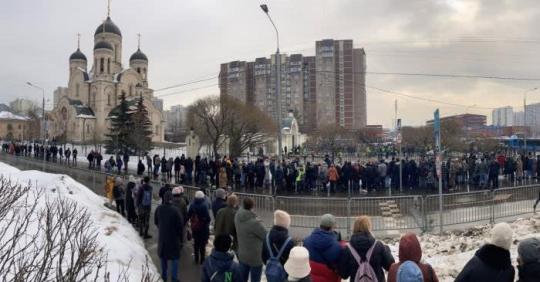
Hundreds of people gathered outside a church in south-eastern Moscow where Alexei Navalny is to be buried ahead of the Russian opposition leader’s funeral on Friday. Navalny, Russia’s most prominent critic of President Vladimir Putin and the invasion of Ukraine, died in February in a remote Arctic prison colony at the age of 47. His widow Yulia Navalnaya and exiled team have accused Putin of ordering his murder to scupper his release in a prisoner exchange.
The Kremlin has dismissed the allegations, while investigators in charge of the inquest claimed Navalny died of natural causes. Dmitry Peskov, Putin’s spokesperson, told reporters on Friday that the Kremlin had nothing to say to Navalny’s relatives and declined to comment on his political stature, according to state newswire RIA Novosti. Peskov said anyone who protested at the funeral would face a police crackdown. “We have to remind you there is a law and it needs to be observed — any unsanctioned gatherings will be against the law. So anyone who takes part in them will be held responsible under the law,” he said.
Footage on social media showed a heavy police presence outside the church amid what Navalny’s team has said is a Kremlin-directed attempt to limit public shows of support. Police arrested about 400 people who left flowers at monuments to Soviet political prisoners following Navalny’s death. Navalny’s mother, Lyudmila Navalnaya, has said officials in northern Russia refused to hand over his body for a week and threatened to let it rot unless she agreed to bury him in secret. After authorities released his body, Navalny’s team said funeral agencies refused to hold a wake for him or provide a hearse after receiving anonymous threats.
Navalny’s memorial service is to be held at the Soothe My Sorrows church in Marino, the neighbourhood where he lived for many years before he was poisoned with the nerve agent novichok in 2020. He will then be buried in the nearby Borisovsky cemetery. After recovering from the poisoning in Berlin, Navalny was arrested immediately when he returned to Moscow in 2021, and was sentenced to decades in prison on a series of charges ranging from tax evasion to extremism.
Russia banned his foundation, which prompted most of his followers to flee the country, jailed the few prominent supporters who stayed, then in effect outlawed all dissent when Putin ordered the full-scale invasion of Ukraine in 2022. The Kremlin then gradually moved to isolate Navalny from the outside world, forcing him to spend 27 stints in a punishment cell that he said amounted to torture and arresting three of his lawyers.
10 notes
·
View notes
Text
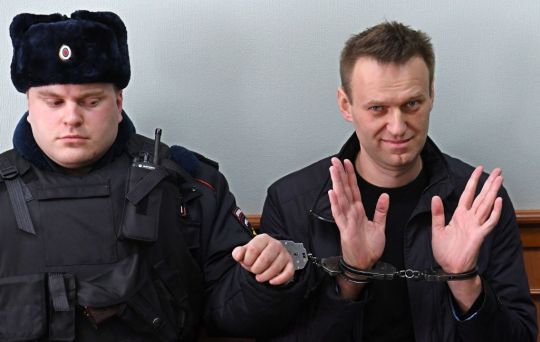
Kremlin critic Alexei Navalny, who died last week in prison, gestures during an appeal hearing at a court in Moscow on March 30, 2017.
Alexei Navalny Taught Russia’s Opposition How to Mobilize 02.20.2024
BYILYA BUDRAITSKIS
Alexei Navalny’s movement attempted a kind of mass mobilization rare among earlier liberal dissidents. He resisted the effort to stifle Russian society — an act of defiance for which he was killed.
"On Friday — unless it had already happened the day before — dissident politician Alexei Navalny was killed in a jail for high-risk prisoners in Russia’s far north. The true causes of his death continue to be hidden, and it is not even known where his body is, though his parents and wife are unsuccessfully trying to get it back from authorities. Navalny may have died from a blow, from poison, or from the systematic torture to which he was subjected throughout three years in prison. We haven’t been told.
Many, including myself, still find it difficult to come to terms with the thought of Navalny’s death. Yet it must be admitted that this has been the expected outcome since he returned to Russia in January 2021."
"Understanding this genesis of Putinism, inextricably linked with the criminal history of the redistribution of former Soviet property, is, as Navalny noted, “the most important issue of political strategy for all supporters of democratic development of the country.”
"And now, after the murder of Navalny, and faced with the rise of authoritarian forms of capitalism around the world, we must remember that without basic freedom of speech and assembly, the Left and the oppressed have very little chance of winning anything."
READ MORE https://jacobin.com/2024/02/alexey-navalny-death-putin-opposition-repression
“Alexei Navalny Taught Russia’s Opposition How to Mobilize”: Historian on Putin’s “Dictatorship”
Mar 04, 2024
"So, I think that the situation is very clear: If Ukraine will be not supported from the West, Russia will continue its offensive and realize its final goal: the elimination of Ukraine as a state."
LISTEN READ MORE Transcript https://www.democracynow.org/2024/3/4/ilya_budraitskis_navalny_russia_putin_ukraine
‘This is B.S.’: Maddow shreds ‘cravenness’ of Supreme Court delaying Trump trial
0 notes
Text
Alexei Navalny was killed.
There are one in a million people like Alexey. Maybe ten million.
And I've been lucky enough to spend the last 13 years working alongside him. What a blessing. How much I owe him. He taught me, explained, hammered into my stupid head that I can do anything, that there are no boundaries, that there is no fear. That you have to fight desperately, but don't take life (and yourself) too seriously about it.
How much we all owe him. A hero, the pride of our country.
Honestly, Alexey, I can't imagine how to live without you. So far, it seems to me that this is impossible. Therefore, you will stay with us forever, even until our last breath, in our thoughts and hearts. We can't do this without you.
I'm going to miss you very, very much, boss.
Head of Investigations at Navalny's Anti-Corruption Foundation, Maria Pevchikh, mourns the death of Alexei Navalny on February 16. While Navalny was recovering from Putin's first murder attempt in August 2020, Pevchikh was instrumental in exposing the FSB terrorists who carried out the crime. Pevchikh also campaigned tirelessly to get Navalny released from prison and to bring down Putin's terrorist regime. Navalny's death is a devastating blow to Russians fighting for decency and civilisation in a country that has returned to Stalinist oppression and terror.
Rest in peace, Alexei Navalny.
#maria pevchikh#alexei navalny#rest in peace#mourning#instagram#russia#free russia#national hero#russia without putin#fight putin#stop the war
5 notes
·
View notes
Text
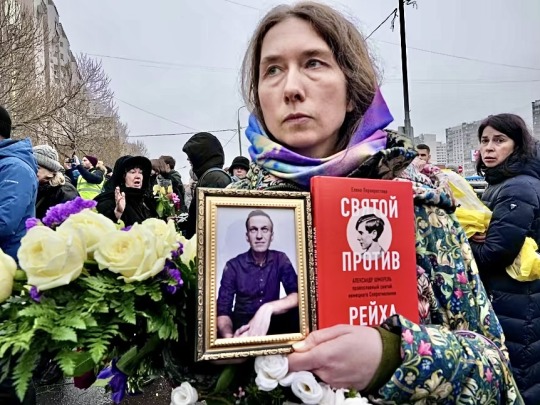
Relatives and supporters of Alexei Navalny bid farewell to the opposition leader at a funeral, following a battle with authorities over the release of his body after his still-unexplained death.
(Photo: Associated Press)
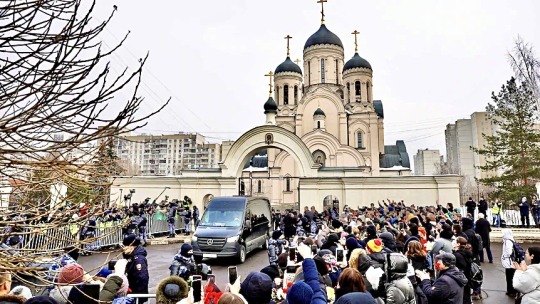
People crowded around the hearse transporting Alexei Navalny's body in Moscow.
(Photo: Reuters - Stringer)
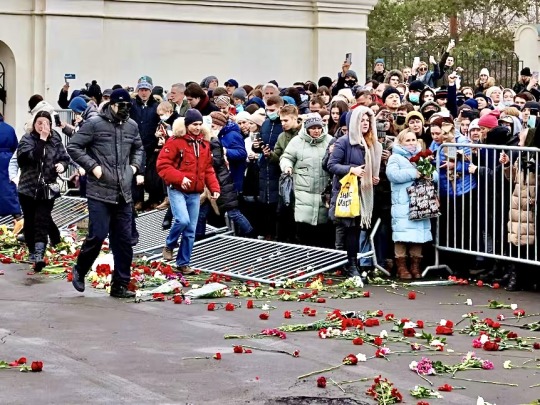
People knock down barriers while leaving an area outside the Soothe My Sorrows church.
(Photo: Reuters - Stringer)
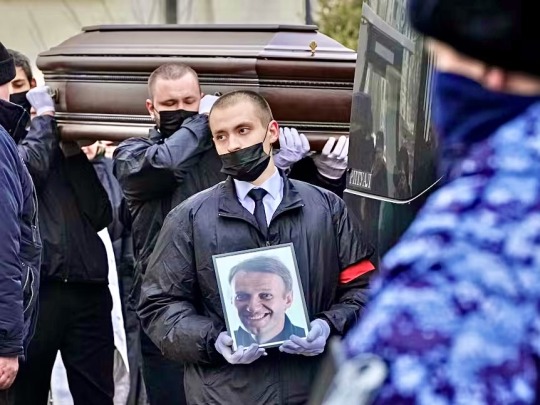
Workers carry the coffin and a portrait of Russian opposition leader Alexei Navalny out of the church. (Photo: Associated Press)
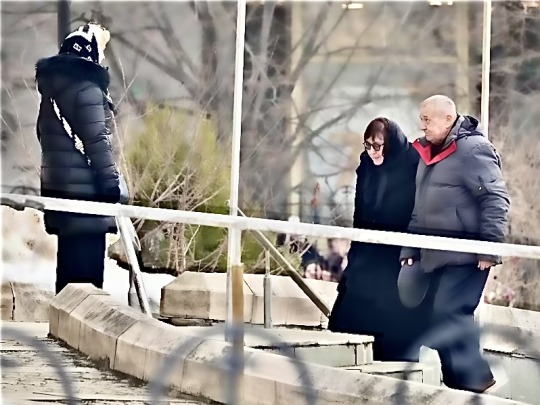
Alexei Navalny's parents Anatoly Navalny (right), and Lyudmila Navalnaya, arrive at the church on Friday. (Photo: Associated Press)
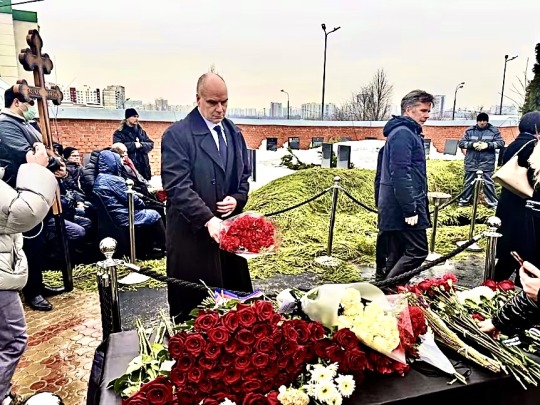
Australia's ambassador John Geering lays flowers near Alexei Navalny's grave.
(Photo: X/Twitter - @PosolAustralia)
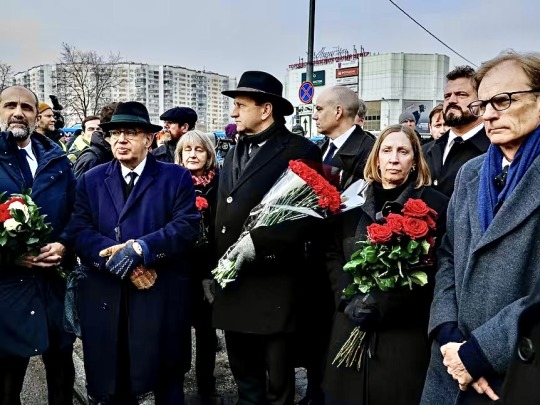
Foreign diplomats, including French Ambassador to Russia Pierre Levy and US Ambassador to Russia Lynne Tracy attended the service.
(Photo Reuters: Stringer)
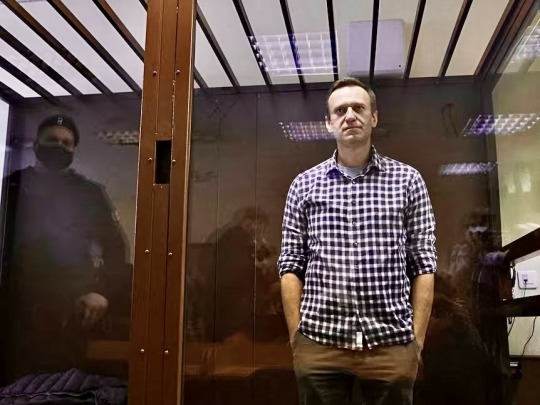
Russian opposition leader Alexei Navalny attends a court hearing in Moscow in 2021.
(Photo: Reuters - Maxim Shemetov)
'Putin is a murderer’: Australia's ambassador among mourners as Navalny's funeral becomes rare protest
Australia's ambassador to Russia was among a rare public anti-Kremlin demonstration when he joined a large crowd at the funeral of opposition leader Alexei Navalny in Moscow on Friday.
John Geering, who began his posting in November, and other Western diplomats were at the service with thousands of mourners and supporters in the district of Maryino, despite warnings from Russian authorities that people could be arrested.
The throng chanted "we are not afraid", "Putin is a murderer", "no war" and "Russia will be free", as the 47-year-old's body was carried into The Church of the Icon of the Mother of God Soothe My Sorrows.
Mr Geering said when he and the other Western diplomats attempted to enter the church, police stopped them.
He later released a statement saying he had been "profoundly impacted and moved by the depth of grief shown by many thousands today at the funeral of Alexei Navalny. Those remembering his legacy at the funeral carry on his hopes for a better Russia. Australia and the world shares your grief and your hopes".
By Riley Stuart in London
ABC News - March 2, 2024
•
•
YouTube video >> Anne Akiko Meyers performs Arvo Pärt's "Fratres" with the Tallinn Chamber Orchestra, Kaljuste - Arvo Pärt Centre [Released: 9 December 2018 / 11mins.+48secs.]:
youtube
In memory of Alexei Navalny RIP
Sic transit gloria mundi
•
•
YouTube video >> Arvo Pärt, Cantus in memoriam Benjamin Britten with the Hungarian State Opera, Tamas Benedek, conductor, Antal Eisrich, percussion [Released: 3 January 2010 / 7mins.+46secs.]:
Arvo Pärt, Cantus in memoriam Benjamin Britten
youtube
Arvo Pärt, Cantus in memoriam Benjamin Britten, Strings of Hungarian State Opera, Tamas Benedek, conductor, Antal Eisrich, percussion. A special thanks to NASA and the Hubbel Showcase.
In memory of Alexei Navalny RIP
Sic transit gloria mundi
•
1 note
·
View note
Text
The Putrid Politics of Putin
The latest on poliphoon.com: "The Putrid Politics of Putin". Alexei Navalny has been killed in captivity. The murder will impact politics of dissidents across the globe. At no cost should anti-Putin forces give up hope. https://poliphoon.com/the-putrid-politics-of-putin/
Murder of Morality. This is what Alexei Navalny’s killing in his Arctic penal cell is. He had escaped an earlier attempt to finish him off when his undergarment was rubbed with a nerve agent in 2020. Sadly, he wasn’t lucky this time. Vladimir Putin, Russia’s dictator and president, has finally succeeded in stifling Mr Navalny’s voice for ever. This is sheer travesty of human justice.
Mr Putin is…
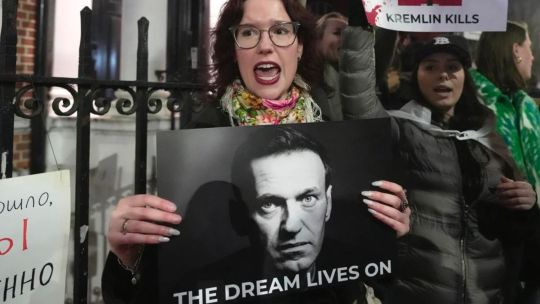
View On WordPress
0 notes
Text
A dark, satiric sensibility is a basic qualification for anyone in the Russian opposition. Those leaders I knew in Moscow, before I left Russia in 2022, liked to crack jokes during interviews with journalists and to judges at court hearings.
Boris Nemtsov, though he had been arrested many times and knew he should worry for his life, would laugh at President Vladimir Putin’s Russia as the “gangster state of absurdity.” He told the story of the time pro-Putin activists had sent a prostitute to his vacation hotel in a bungled attempt to fabricate kompromat.
In 2015, Nemtsov was shot in his back as he strolled across a bridge near the Kremlin. Some of his associates thought that it was, in the end, his mockery of Putin that had marked him out as a target for assassination. (Nemtsov and I shared a name, but we were not related.)
When I learned of Alexei Navalny’s death in prison on Friday, I posted on social media a picture of him with Nemtsov: both with big, radiant smiles, standing shoulder to shoulder in front of a banner that advertised an opposition rally in that spring of 2015. “How beautiful these men are, unlike that miserable little greedy coward,” one Russian follower commented.
Beautiful, perhaps. Brave, certainly. When I think of the two of them, I will always remember the words written on a piece of paper that Navalny held at one of his court hearings: “I am not afraid and you should not be afraid.” Navalny was still smiling and laughing on the eve of his death, as a video of his appearance at a court hearing on Thursday attests. The next day, he reportedly fell ill and collapsed after a walk in the compound of the former Soviet Gulag prison in the Arctic Circle where he was sent last year.
“Make no mistake: Putin is responsible for Navalny’s death,” President Joe Biden said at a White House news conference on Friday. Human-rights defenders who know Russia’s prison system agree. “Of course, he was murdered by a chain of actions ordered by Putin or by his men,” Sergei Davidis, the head of the political prisoners support program at the Memorial Human Rights Center, told me. “They were killing Navalny for a long time: First they poisoned him with Novichok, then arrested him illegally, then put him in solitary confinement for 300 days.”
Navalny was always angry at the corrupt and stupid public officials who, as he saw it, were robbing the Russian people. In one of several interviews I recorded with him, he referred to the Kremlin elite as an “idiotic regime.” But he was also critical of the “Western enablers,” the bankers, lawyers, and accountants who launder the oligarchs’ money abroad through real-estate deals in London, New York, and elsewhere.
Russia holds more than 500 political prisoners, according to the most recent tallies by Davidis’s group and U.S. officials. Deaths in prison are common. “Our group is monitoring the health of political prisoners; we are worried about at least four people who are in a critical condition,” he told me. Many wonder why Navalny returned to Russia from Germany, in 2021, after already suffering so much and in such open defiance of the opponent he called “Putin the thief.” “Navalny’s sacrifice will always be remembered,” Davidis said.
“I understand why Navalny returned to Russia, why Nemtsov came back,” Boris Vishnevsky, a member of the St. Petersburg city council, told me on Friday. He was mourning Navalny’s death, despite political differences they had had in the past. Vishnevsky’s opposition party, Yabloko, had previously criticized Navalny for participating in ultranationalist rallies. But Vishnevsky had since taken Navalny’s side. “As soon as Alexei returned to Russia and ended up behind bars, I immediately spoke against his arrest,” he said.
He understood the actions of Nemtsov and Navalny as very deliberate. “If you are a politician or an independent journalist in Russia today, you have to overcome fear,” he told me. “They made a decision to become martyrs.”
I remember a call I made to Nemtsov in September 2014, a few months before his death. I was reporting from a village in Dagestan with a sad name: Vremenny, or “temporary.” Russian security forces were demolishing houses there to punish the families of people accused of terrorism. I remember seeing the remains of children’s toys sticking up from the ground after the bulldozers had been through.
This was the year of Putin’s military intervention in the Donbas region of Ukraine, and of his annexation of Crimea. Nobody was paying much attention to human rights in a remote part of the North Caucasus. When I told Nemtsov something about my assignment in one of “the ’stans,” he laughed. When I explained where, he commented, “Dagestan will be always hot.” And then he said, “Listen, if I don’t joke, I will go nuts in our reality.” I spoke with him again, some weeks later, at his house in central Moscow. He told me that some of his friends were advising him to get out. “Why should I run?” he said. “Let Putin and his thugs run.”
That was my last interview with Nemtsov. When someone dies, you try to remember the last conversation you had with them. In 2020, I interviewed Navalny on camera for a documentary. I recall that he expressed a firm belief that, in 10 years’ time, we would speak again—and he would explain exactly how he’d won the war against corruption and for political freedom in Russia.
He was smiling. But this time, perhaps, he wasn’t joking.
3 notes
·
View notes